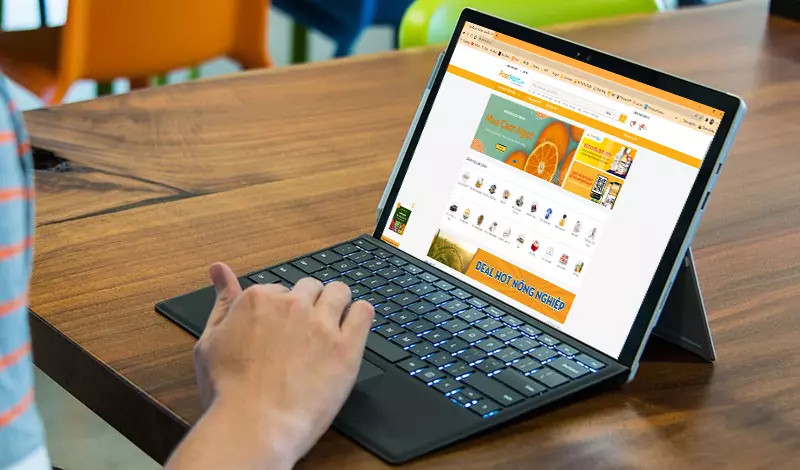
Nguyen Ly, 29, in HCM City is a busy office worker. As she does not have much time to go to shops to buy essential things, she mostly orders products online. There are three apps on her mobile phone, including Lazada, Tiki and Shopee.
“I installed the three apps to ‘hunt’ for sales. All of them usually run sale promotions. After comparing prices on the three apps, I order the cheapest product,” she explained.
According to a report on the internet economy in Southeast Asia in 2020 released by Google, Temasek and Bain & Company, the number of new online shoppers accounted for 41 percent of total online shoppers in Vietnam, which was higher than the Philippines (37 percent), Malaysia (36 percent), and Thailand (30 percent), and higher than the average level of Southeast Asia (36 percent).
The report also says 43 percent of Vietnamese use the internet to search for information to buy goods.
It was estimated that 49.3 million Vietnamese bought goods online in 2020 and the online shopping value was $240 (VND5.5 million) per head per annum.
Because of Covid-19, the number of online shoppers has soared. Not only e-commerce sites, but other distributors have realized that the pandemic changed shopping habits, lifestyle and consumption behaviors. This, plus the strong development of technology, has prompted businesses to personalize purchasing experiences.
Aeon Vietnam has developed a retail model and created the Aeon resident ecosystem. At the same time, it is promoting mobile apps, omni-channel shopping, and non-cash payment via e-wallet and automatic payment counters.
Bruno Jousselin, CEO of MM Mega Market Vietnam, said that in addition to B2C (individual clients), the retailer also aims at personalizing experience for B2B (businesses) clients through the development of a specific app of its own.
After clients are granted accounts, the supermarket chain selects and provides products suitable to the taste of the client. The information about 40,000 products is personalized to help businesses save time when placing orders.
Masan Group President Nguyen Dang Quang said the group is digitizing a B2C platform and ensuring that the platform will work effectively for B2B partners, together with more than 300,000 physical shops that Masan is running currently.
Automated warehouses
According to the white book about Vietnam’s e-commerce in 2021, Vietnam’s e-commerce grew by 18 percent in 2020 with the value of $11.8 billion. Vietnam is expected to become the fastest-growing e-commerce market in Southeast Asia with total value of e-commerce goods of $56 billion by 2026.
Analysts say the e-commerce boom (both B2B and B2C) is challenging Asian cities. Traffic jams affect the delivery of goods. Manufacturers and distributors are under pressure to find ways to deliver products to customers in the most effective way.
As such, distribution centers and warehouses play a very important role in the movement of goods, and create favorable conditions for delivery of goods to retail shops and consumers. They are considered “logistics centers” which help bring products closer to customers.
That is why Masan is piloting the ‘supply chain of the future, which comprises of fulfillment warehouses and dark stores (centers specifically reserved to fulfill orders placed online, not open to direct customers) at the supermarkets utilizing AI and Machine learning technologies to run automatically.
Through the centralized mechanism and technology application, the enterprise aims at shortening the distance, increasing the capacity, planning the supply and demand, reducing losses and optimizing the inventory level in the consumption value chain. This could be the key to improve the order fulfillment capability and last-mile delivery to consumers.
The introduction of a new retail solution for traditional trading partners is a way to reduce the prices of essential items by 5-10 percent in the context that traditional distribution channels such as traditional markets still account for 90 percent of the retail market.
Cainiao, belonging to Alibaba, has announced the development of Cainiao Dong Nai Smart Logistics Park which provides 90,000 square meters of warehouses to meet businesses’ surging supply chain needs.
Meanwhile, FM Logistics has also opened a new urban distribution center, covering an area of 20,000 sq m in Di An City of Binh Duong province. This is the warehouse for enterprises in FMCG sector (fast moving consumer goods). The automation level at the warehouse is high, with automatic classification machine, packaging machines, goods to person system and robots.
Tran Chung